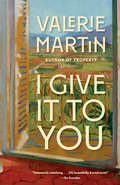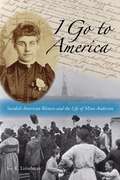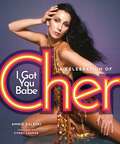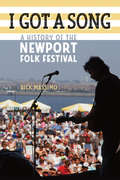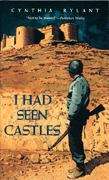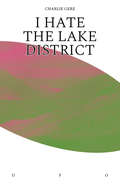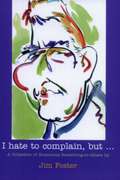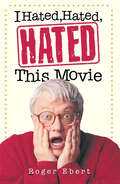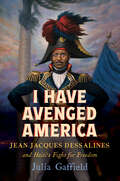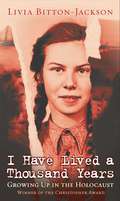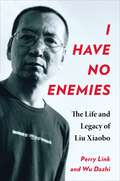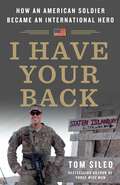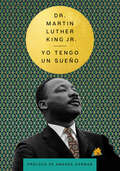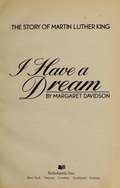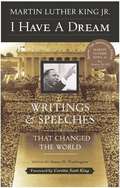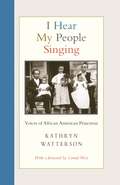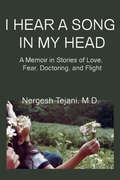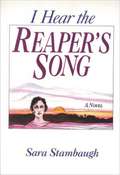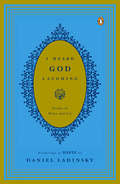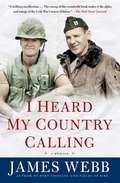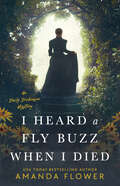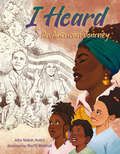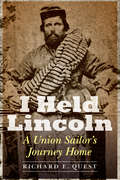- Table View
- List View
I Freed Myself
by David WilliamsFor a century and a half, Abraham Lincoln's signing of the Emancipation Proclamation has been the dominant narrative of African American freedom in the Civil War era. However, David Williams suggests that this portrayal marginalizes the role that African American slaves played in freeing themselves. At the Civil War's outset, Lincoln made clear his intent was to save the Union rather than free slaves - despite his personal distaste for slavery, he claimed no authority to interfere with the institution. By the second year of the war, though, when the Union army was in desperate need of black support, former slaves who escaped to Union lines struck a bargain: they would fight for the Union only if they were granted their freedom. Williams importantly demonstrates that freedom was not simply the absence of slavery but rather a dynamic process enacted by self-emancipated African American refugees, which compelled Lincoln to modify his war aims and place black freedom at the center of his wartime policies.
I Give It to You: A Novel
by Valerie MartinA timeless story of family, war, art, and betrayal set around an ancient, ancestral home in the Tuscan countryside from bestselling novelist Valerie Martin.When Jan, an American academic, rents an apartment in a Tuscan villa for the summer, she plans to spend her break writing a biography of Mussolini. Instead, she finds herself captivated by her hostess, the elegant, acerbic Beatrice. Beatrice's family ties to Villa Chiara and the land on which it stands extend back generations, although the family has fallen on hard times since WWII and the fate of the property is uncertain. But it is rich in stories, and Jan becomes intrigued by an account of Beatrice's uncle, who was mysteriously killed on the grounds at the conclusion of the war. Did he die at the hands of the invading Americans, or was he murdered by his countrymen for his political opinions? Beatrice, a student of American literature, proves to be a beguiling storyteller and a sharp critic; she and Jan keep in touch after that summer, and a fierce friendship forms. As the years go on, Jan finds she can't help but write Beatrice's story, a decision that opens up questions of ownership and loyalty and leads to a major betrayal. Thrumming with tension, informed by history, and exploring themes of duty, destiny, art, and friendship, I Give It to You is Valerie Martin at the top of her game.
I Go to America: Swedish American Women and the Life of Mina Anderson
by Joy K. LintelmanNear the end of her life, Mina Anderson penned a lively memoir that helped Swedish novelist Vilhelm Moberg create "Kristina", the central female character of his beloved emigrant novels, a woman who constantly yearns for her homeland. But Mina's story was quite different. Showcasing her previously untranslated memoir, "I Go To America" traces Mina's trip across the Atlantic to Wisconsin and then the Twin Cities, where she worked as a domestic servant, and her move to rural Mille Lacs County, where she and her husband worked a farm, raised seven children, and contributed to rural Swedish community life. Mina herself writes about how grateful she was for the opportunity to be in America, where the pay was better, class differences were unconfining, and children -- girls included -- had the chance for a good education. In her own words, "I have never regretted that I left Sweden. I have had it better here". Joy Lintelman greatly expands upon Mina's memoir, detailing the social, cultural, and economic realities experienced by countless Swedish women of her station. Lintelman offers readers both an intimate portrait of Mina Anderson and a window into the lives of the nearly 250,000 young, single Swedish women who immigrated to America from 1881 to 1920 and whose courage, hard work, and pragmatism embody the American dream.
I Got You Babe: A Celebration of Cher
by Annie ZaleskiCovering her life and sixty-year career from Sonny & Cher to show-stopping solo performer, award-winning actress, fashion icon, and beyond, this is a glorious retrospective of one of the world&’s most enduring entertainers, Cher. Featuring a foreword by Cyndi Lauper! Commemorating six decades since her first #1 hit in 1965, I Got You Babe captures Cher&’s one-of-a-kind life. Written by award-winning writer and editor Annie Zaleski, this celebration of the fearless, down-to-earth &“Goddess of Pop&” explores key moments in her life and career in words and photos. Among the topics covered: Her 50-year friendship with fellow diva Tina Turner, which began in 1975 when they performed &“Shame, Shame, Shame&” together. Her story of creating a &“revenge dress&” with designer Bob Mackie for the 1986 Oscars after being snubbed for a nomination for her performance in Mask. The night in 1989 she made the Navy wish it could &“Turn Back Time&” by arriving at the USS Missouri to film her video not wearing the coveralls they expected but a barely-there fishnet bodysuit. Cher&’s unfiltered social media presence. From classic posts like &“BREAKING NEWS: IM BEING BURIED IN MY FISHNETS&” to weighing in on issues she believes in. When Cher learned about Kaavan, dubbed &“the world&’s loneliest elephant.&” The creature was kept in chains in a zoo in Pakistan and forced to perform for decades. After fans brought the problem to her attention, Cher eventually helped get him moved in 2021, and her efforts were captured in a Smithsonian documentary. Amid these moments are photo after photo of some of the most eye-popping outfits ever worn in life and on stage. As an avid clothes horse who wasn&’t afraid to wear a see-through dress to the Met Gala in 1974, Cher&’s many looks will be given their due in this engaging, career-spanning retrospective.
I Got a Song: A History of the Newport Folk Festival (Music/interview Ser.)
by Rick MassimoThe first-ever book exclusively devoted to the history of the Newport Folk Festival, I Got a Song documents the trajectory of an American musical institution that began more than a half-century ago and continues to influence our understanding of folk music today. Rick Massimo’s research is complemented by extensive interviews with the people who were there and who made it all happen: the festival's producers, some of its biggest stars, and people who huddled in the fields to witness moments—like Bob Dylan’s famous electric performance in 1965—that live on in musical history. As folk has evolved over the decades, absorbing influences from rock, traditional music and the singer-songwriters of the ‘60s and ‘70s, the Newport Folk Festival has once again become a gathering point for young performers and fans. I Got a Song tells the stories, small and large, of several generations of American folk music enthusiasts.
I Had Seen Castles
by Cynthia RylantJohn Dante is seventeen when the Japanese bomb Pearl Harbor, and he wants to fight for his country. Then he falls in love with Ginny Burton, who is against all war, and his beliefs are suddenly and unexpectedly questioned. But rather than be judged a traitor or a coward, he enlists. Rylant's story is heartbreaking in its honesty; her controlled, elegant prose lends poignancy to the story's emotional depth. A love story, a coming-of-age tale, a book with a passionate anti-war message, I Had Seen Castles is not to be missed.--Publishers Weekly
I Hate the Lake District (Goldsmiths Press / Unidentified Fictional Objects)
by Charlie GereAn alternative view of the North West of England that delves into its stranger past. I Hate the Lake District offers a different vision of the rural environment from those found in much contemporary nature writing. Based on the author's trips around North West England, the book engages with nuclear power and nuclear war, slavery, imperialism, ghosts, love, God, cockroaches, and the sheer violence and contingency of “nature” itself—of which the human presence is merely a part. Each chapter starts with an account of a visit to a place in this remote part of England, the deep north, but digresses and wanders through multifarious themes and subjects. Among the sites Gere visits are the defunct nuclear power station at Sellafield, home of all British nuclear waste; Lake Coniston, where Donald Campbell died trying to break the water speed record; Hadrian's Wall, furthermost reach of the Roman Empire; the mysterious and deathly Morecambe Bay; sites of slavery in the North West; places where UFOs have been sighted, avant-garde artists created work, and Islamic terrorists trained; shantytowns where the navvies who built the railways lived with their families; and even the remains of Blobbyland in Morecambe. In I Hate the Lake District, Gere challenges the bourgeois pastoralism of popular nature writing and reveals the landscape of North West England as profoundly unnatural and strange.
I Hate to Complain, But...
by Jim FosterIt is rare that one can pick up a book and find all the answers to the problems of Life. Yet in this one book, we find these answers, and learn a few more things that will keep us up at night. What really happened when Mike Harris woke up after emergency surgery in a hospital still smarting from budget cuts? Why did Linda Tripp turn on Bill Clinton? How many people knew that after the Manhattan Project, the world’s leading scientists gathered at Jane Russell’s house to devise the strapless bra?This is a book for everyone: it’s an exercise program for the not-too-ambitious senior, a step-by-step guide for the teenage lad on his first date, an advice column for the young spinster who, at the ripe old age of 22, is still trying to find a first-class man.We listen in as two American broadcasters cover the Olympic Games as only Americans can.We learn that even the big guns at the TSE were unaware of the biggest corporate takeover in history when S Claus Corp seized control of its philanthropic rival, EasterBunCo.Yet, for all its humour, the book still brings us close to tears as the author reveals the tragedy of his thirty-year love affair with Sophia Loren.If Shakespeare were alive today, he would read this book?
I Hated, Hated, Hated This Movie
by Roger EbertThe Pulitzer Prize–winning film critics offers up more reviews of horrible films.Roger Ebert awards at least two out of four stars to most of the more than 150 movies he reviews each year. But when the noted film critic does pan a movie, the result is a humorous, scathing critique far more entertaining than the movie itself.I Hated, Hated, Hated This Movie is a collection of more than 200 of Ebert’s most biting and entertaining reviews of films receiving a mere star or less from the only film critic to win the Pulitzer Prize. Ebert has no patience for these atrocious movies and minces no words in skewering the offenders.Witness: Armageddon * (1998)—The movie is an assault on the eyes, the ears, the brain, common sense, and the human desire to be entertained. No matter what they’re charging to get in, it’s worth more to get out.The Beverly Hillbillies * (1993)—Imagine the dumbest half-hour sitcom you’ve ever seen, spin it out to ninety-three minutes by making it even more thin and shallow, and you have this movie. It’s appalling.North no stars (1994)—I hated this movie. Hated hated hated hated hated this movie. Hated it. Hated every simpering stupid vacant audience-insulting moment of it. Hated the sensibility that thought anyone would like it. Hated the implied insult to the audience by its belief that anyone would be entertained by it.Police Academy no stars (1984)—It’s so bad, maybe you should pool your money and draw straws and send one of the guys off to rent it so that in the future, whenever you think you’re sitting through a bad comedy, he could shake his head, chuckle tolerantly, and explain that you don't know what bad is.Dear God * (1996)—Dear God is the kind of movie where you walk out repeating the title, but not with a smile.The movies reviewed within I Hated, Hated, Hated This Movie are motion pictures you’ll want to distance yourself from, but Roger Ebert’s creative and comical musings on those films make for a book no movie fan should miss.
I Have Avenged America: Jean-Jacques Dessalines and Haiti's Fight for Freedom
by Julia GaffieldA moving and humane portrait of the abolitionist revolutionary Jean-Jacques Dessalines, who led Haiti&’s fight for independence from French colonial rule &“My name has become a horror to all those who want slavery,&” declared Jean‑Jacques Dessalines as he announced the independence of Haiti, the most radical nation‑state during the Age of Revolution and the first country ever to permanently outlaw slavery. Enslaved for the first thirty years of his life, Dessalines (c. 1758–1806) joined the revolution that abolished slavery within the French colony. Then he became a general in the colonial army of the new French Republic. When it was discovered that France once again supported slavery, Dessalines declared war on his former allies. Fighting under the slogan &“Liberty or Death,&” his army forced the French to evacuate in late 1803. At the start of the new year, Dessalines declared independence from France and became the leader of a free Haiti. A hero to Haitians for centuries, Dessalines is portrayed abroad as barbarous and violent. Yet this caricature derives not from facts—as Julia Gaffield demonstrates with extensive new research—but from the fears of contemporary enslavers. Showcasing the man behind the myths, Gaffield reveals Dessalines&’s deep suffering, warm friendships, and unwavering commitment to destroying slavery, racism, and colonialism, and his bold insistence on his people&’s right to liberty and equality.
I Have Lived a Thousand Years: Growing Up in the Holocaust
by Livia Bitton-JacksonWhat is death all about? What is life all about? <P><P> So wonders thirteen-year-old Elli Friedmann as she fights for her life in a Nazi concentration camp. A remarkable memoir, I Have Lived a Thousand Years is a story of cruelty and suffering, but at the same time a story of hope, faith, perseverance, and love. It wasn't long ago that Elli led a normal life that included family, friends, school, and thoughts about boys. A life in which Elli could lie and daydream for hours that she was a beautiful and elegant celebrated poet. But these adolescent daydreams quickly darken in March 1944, when the Nazis invade Hungary. First Elli can no longer attend school, have possessions, or talk to her neighbors. Then she and her family are forced to leave their house behind to move into a crowded ghetto, where privacy becomes a luxury of the past and food becomes a scarcity. Her strong will and faith allow Elli to manage and adjust, but what she doesn't know is that this is only the beginning. The worst is yet to come...
I Have No Enemies: The Life and Legacy of Liu Xiaobo
by Perry Link Dazhi WuLate one night in December 2008, police arrived at the home of Liu Xiaobo—China’s leading dissident, a key figure in the prodemocracy manifesto Charter 08—and took him away. When Liu won the 2010 Nobel Peace Prize as a political prisoner, the award was bestowed on an empty chair. Inside China, the regime sought to erase every trace of his existence. Liu died of liver cancer in 2017 without ever having been allowed to return home.I Have No Enemies is the definitive biography of Liu Xiaobo, offering a meticulously researched account of the twists and turns of a remarkable life. Perry Link and Wu Dazhi explore Liu’s upbringing, immersion in classical Chinese poetry and philosophy, bold challenges to literary conformity, and involvement in democratic movements. They trace the lifelong evolution of his thinking and chronicle his persecution, incarceration, and death.I Have No Enemies emphasizes Liu’s principled commitment to dissent and the significance of the example he set in China and around the world. Liu was a farsighted strategist whose ultimate goal was “to change a regime by changing a society.” In Tiananmen Square, he showed others how to face down armed soldiers; in daily life, he looked for ways to build a more democratic culture. A powerful record of Liu’s life and times, this book also tells the story of a generation of Chinese intellectuals who sought a better way forward.
I Have Your Back: How an American Soldier Became an International Hero
by Tom SileoThe story of U.S. Army Staff Sgt. Michael Ollis, who became an international hero for his courage and selflessness.Ever since he was a young boy growing up on the streets of Staten Island, New York, Michael Ollis wanted to be a soldier. Inspired by his father, who fought in Vietnam, Mike’s deep desire to serve was cemented on the day his beloved city was attacked. From 9/11 onward, Mike’s one and only mission was to save lives.After two tense combat deployments, Staff Sergeant Michael Ollis earned the US Army’s coveted Ranger tab and set his sights on the perilous mountains of eastern Afghanistan. On August 28, 2013, Mike was suddenly caught in the middle of a massive and unprecedented Taliban assault on a coalition military base. Rather than retreat to his bunker, Mike decided to fight. He then encountered a Polish army officer who needed his help.Despite being surrounded by enemy fighters while running low on ammunition, Mike promised the foreign soldier that no matter what, he would have his back. For his final act of bravery, Staff Sergeant Michael Ollis would not only receive the Distinguished Service Cross from his own country, but the highest honor that Poland can bestow upon an allied soldier.As an American warrior, Staff Sergeant Michael Ollis had all of our backs. This vivid and visceral account of Mike’s selfless 24-year journey will motivate us to “live like Mike” by always putting family, friends and country first.
I Have a Dream \ Yo tengo un sueño (Spanish Edition)
by Dr. Martin Luther King Jr.Presentamos la biblioteca Martin Luther King Jr.Con un nuevo prólogo de Amanda Gorman.Una hermosa edición coleccionable del legendario discurso del Dr. Martin Luther King Jr en la Marcha en Washington, parte de los archivos del Dr. King publicados exclusivamente por HarperCollins. El 28 de agosto de 1963, el Dr. Martin Luther King Jr. se presentó ante miles de estadounidenses que se habían reunido en el Lincoln Memorial en Washington, D.C. en nombre de los derechos civiles. Incluyendo las palabras inmortales, "Tengo un sueño", el discurso de apertura del Dr. King dinamizaría un movimiento y cambiaría el curso de la historia.Con referencias al Discurso de Gettysburg, la Proclamación de Emancipación, la Declaración de Independencia, la Constitución de los Estados Unidos, Shakespeare y la Biblia, el discurso de la Marcha en Washington del Dr. King ha sido aclamado durante mucho tiempo como uno de los mejores escritos y oraciones de la historia.Profundo y profundamente conmovedor, es tan relevante hoy como lo fue casi sesenta años antes.Esta edición de tapa dura bellamente diseñada presenta el discurso del Dr. King en su totalidad, rindiendo homenaje a este líder extraordinario y su inconmensurable contribución, e inspirando a una nueva generación de activistas dedicados a continuar la lucha por la justicia y la igualdad.Introducing the Martin Luther King Jr LibraryWith a New Foreword by Amanda GormanA beautiful collectible edition of Dr. Martin Luther King Jr’s legendary speech at the March on Washington, laid out to follow the cadence of his oration—part of Dr. King’s archives published exclusively by HarperCollins.On August 28, 1963, Dr. Martin Luther King Jr. stood before thousands of Americans who had gathered at the Lincoln Memorial in Washington, D.C. in the name of civil rights. Including the immortal words, “I have a dream,” Dr. King’s keynote speech would energize a movement and change the course of history.With references to the Gettysburg Address, the Emancipation Proclamation, the Declaration of Independence, the U.S. Constitution, Shakespeare, and the Bible, Dr. King’s March on Washington address has long been hailed as one of the greatest pieces of writing and oration in history. Profound and deeply moving, it is as relevant today as it was nearly sixty years earlier.This beautifully designed hardcover edition presents Dr. King’s speech in its entirety, paying tribute to this extraordinary leader and his immeasurable contribution, and inspiring a new generation of activists dedicated to carrying on the fight for justice and equality.
I Have a Dream: The Story of Martin Luther King, Jr.
by Margaret DavidsonAn inspiring portrait of a man who changed the course of American history.
I Have a Dream: Writings and Speeches that Changed the World
by James Melvin Washington Martin Luther King Jr.A concise and convenient presentation of the most memorable writings and speeches of Dr. Martin Luther King Jr. Foreword by Coretta Scott King.
I Hear My People Singing: Voices of African American Princeton
by Kathryn WattersonA vivid history of life in Princeton, New Jersey, told through the voices of its African American residentsI Hear My People Singing shines a light on a small but historic black neighborhood at the heart of one of the most elite and world-renowned Ivy-League towns—Princeton, New Jersey. The vivid first-person accounts of more than fifty black residents detail aspects of their lives throughout the twentieth century. Their stories show that the roots of Princeton’s African American community are as deeply intertwined with the town and university as they are with the history of the United States, the legacies of slavery, and the nation’s current conversations on race.Drawn from an oral history collaboration with residents of the Witherspoon-Jackson neighborhood, Princeton undergraduates, and their professor, Kathryn Watterson, neighbors speak candidly about Jim Crow segregation, the consequences of school integration, World Wars I and II, and the struggles for equal opportunities and civil rights. Despite three centuries of legal and economic obstacles, African American residents have created a flourishing, ethical, and humane neighborhood in which to raise their children, care for the sick and elderly, worship, stand their ground, and celebrate life. Abundantly filled with photographs, I Hear My People Singing personalizes the injustices faced by generations of black Princetonians—including the famed Paul Robeson—and highlights the community’s remarkable achievements. The introductions to each chapter provide historical context, as does the book’s foreword by noted scholar, theologian, and activist Cornel West.An intimate testament of the black community’s resilience and ingenuity, I Hear My People Singing adds a never-before-compiled account of poignant black experience to an American narrative that needs to be heard now more than ever.
I Hear a Song in My Head: A Memoir in Stories of Love, Fear, Doctoring, and Flight
by M.D. Nergesh Tejani“[Tejani] shares her stories of succeeding as a doctor in Uganda during the 1960s . . . a must for those seeking a medical memoir collection.” —Midwest Book ReviewSet in Uganda of the sixties with bookends in India and New York, this doctor’s story tells of a turbulent political time when colonial Uganda graduated to self-rule. It is also the personal story of an Indian woman living in an independent African country wanting and needing assimilation but regretfully recognizing rejection. It is the story of the exhilaration of living in a country more beautiful than Eden, if sometimes a threatened Eden. But most of all it tells doctoring tales made delicate by seeing them through the heart. It was a time in medicine before evidential imperatives removed the romance. “Dr. Tejani’s unique meld of skill and compassion radiates throughout this text which will touch both physician and lay readers alike.” —Frank A. Chervenak, MD, New York Weill Cornell Medical Center “With clarity, drama, and humor, this book creates a family story, a picture of an African nation in the throes of political upheaval, and an original and illuminating view of medical needs and practices in circumstances that exist today in many parts of the world. The complex harmonies of the song in Dr. Tejani’s head will resonate for a wide variety of readers.” —Carol Sicherman, author of Rude Awakenings“Nergesh Tejani is a terrific writer . . . Her subject is often exotic, often with international themes and full of pithy observations and wisdom.” —Abraham Verghese, MD, Professor of the Theory and Practice of Medicine, Stanford University Medical Center
I Hear the Reaper's Song: A Novel
by Sara StambaughSet in a small Mennonite community in Pennsylvania in 1896, this novel depicts the reaction of the "plain people" to various modern encroachments. Publishers Weekly called it, "A beautifully told lesson for the contemporary reader in how any community adapts to a changing world." Portrays tragedy and crisis in a small Pennsylvania community in 1896 from the point of view of a 15-year-old Mennonite boy in the whirlpool of his first encounter with death. In the spring of 1896, Silas Hershey was 15. He worked hard six days a week alongside his family in their corn and tobacco fields. On Sundays he gossiped with his cousin Sam, eyeing the girls from a corner of the Paradise Mennonite Church yard, and several evenings a week he drove his sister Barbie and cousin Biney to "special meetings" at nearby churches. Then there were the troubled romances of both Barbie and older brother Hen. But social and political change was flooding the country, and in Lancaster County, Pennsylvania, the ripples lapped up over the church steps and into the pulpits. The special evening meetings which to Silas and Sam were little more than out-of-the-ordinary social occasions in fact signalled a radical change in Mennonite belief and tradition. All promoted by the "Western preachers," as Silas called them. Events come to a climax one summer Saturday night when Barbie and her young man, Enos Barge, are coming home from a party and a train hits their buggy at a dangerous crossing. The Western preachers capitalize on the incident; neither Barbie nor Enos had yet joined church, and the revivalists point to them as examples of what can happen to those who are not "saved." People convert in flocks. And the Hersheys, to whom Barbie was their light and joy, are left stunned by grief, struggling to keep a shattered family from disintegrating. Sara Stambaugh tells the story with both sympathy and candor. She also succeeds remarkably well in capturing the point of view, language, and feelings of an adolescent Mennonite boy, caught in the whirlpool of a first encounter with death. Her images evoke a time and place so clearly that the reader can almost smell the arbutus and feel the crackle of ice underfoot.Skyhorse Publishing, as well as our Arcade, Yucca, and Good Books imprints, are proud to publish a broad range of books for readers interested in fiction-novels, novellas, political and medical thrillers, comedy, satire, historical fiction, romance, erotic and love stories, mystery, classic literature, folklore and mythology, literary classics including Shakespeare, Dumas, Wilde, Cather, and much more. While not every title we publish becomes a New York Times bestseller or a national bestseller, we are committed to books on subjects that are sometimes overlooked and to authors whose work might not otherwise find a home.
I Heard God Laughing: Poems of Hope and Joy
by HafizFrom the renowned translator of The Gift, a rich collection that brings the great Sufi poet to Western readers To Persians , the poems of Hafiz are not "classical literature" from a remote past but cherished wisdom from a dear and intimate friend that continue to be quoted in daily life. With uncanny insight, Hafiz captures the many forms and stages of love. His poetry outlines the stages of the mystic's "path of love"-a journey in which love dissolves personal boundaries and limitations to join larger processes of growth and transformation. With this stunning collection, Ladinsky has succeeded brilliantly in translating the essence of one of Islam's greatest poetic and spiritual voices. BACKCOVER: "If you haven't yet had the delight of dining with Daniel Ladinsky's sweet, playful renderings of the musings of the great saints, I Heard God Laughing is a perfect appetizer. . . . This newly released edition of his first playful foray into Hafiz's divinely inspired poetry is essential reading . . . . Ladinsky is a master who will be remembered for finally bringing Hafiz alive in the West. " -Alexandra Marks, The Christian Science Monitor .
I Heard It Through the Grapevine: Rumor in African-American Culture
by Patricia A. TurnerI Heard It Through the Grapevine explores how rumors that run rife in African-American communities, concerning such issues as AIDS, the Ku Klux Klan and FBI conspiracies, translate white oppression into folk warnings, and are used by the community to respond to a hostile dominant culture.
I Heard My Country Calling: A Memoir
by James WebbIn this brilliantly received memoir, former senator James Webb has outdone himself. It is rare in America that one individual is recognized for the highest levels of combat valor, as a respected member of the literary and journalistic world, and as a blunt-spoken leader in national politics. In this extraordinary memoir, Webb writes vividly about the early years that shaped such a remarkable personal journey.Webb’s mother grew up in the poverty-stricken cotton fields of East Arkansas. His father and lifetime hero was the first in many generations of Webbs, whose roots are in Appalachia, to finish high school. He flew bombers in World War II and cargo planes in the Berlin Airlift, graduated from college in middle age, and became an expert in the nation’s most advanced weaponry. Webb’s account of his childhood is a tremendous American saga as the family endures the constant moves and challenges of the rarely examined post–World War II military, with a stern but emotionally invested father, a loving mother who had borne four children by the age of twenty-four, a granite-like grandmother who held the family together during his father’s frequent deployments, and a rich assortment of aunts, siblings, and cousins. Webb tells of his four years at Annapolis in a voice that is painfully honest but in the end triumphant. His description of Vietnam’s most brutal battlefields breaks new literary ground. One of the most highly decorated combat Marines of that war, he is a respected expert on the history and conduct of the war. Webb’s novelist’s eyes and ears invest this work with remarkable power, whether he is describing the resiliency that grew from constant relocations during his childhood, the longing for his absent father, his poignant good-bye to his parents as he leaves for Vietnam, his role as a twenty-three-year-old lieutenant through months of constant combat, or his election to the Senate, where he was a leader on national defense, foreign policy, and economic fairness. This is a life that could happen only in America.
I Heard a Fly Buzz When I Died (An Emily Dickinson Mystery #2)
by Amanda FlowerWhen a literary icon stays with the Dickinson family, Emily and her housemaid Willa find themselves embroiled in a shocking murder in this new mystery from USA Today bestselling and Agatha Award–winning author Amanda Flower.August 1856. The Dickinson family is comfortably settled in their homestead on Main Street. Emily&’s brother, Austin Dickinson, and his new wife are delighted when famous thinker and writer Ralph Waldo Emerson comes to Amherst to speak at a local literary society and decides he and his young secretary, Luther Howard, will stay with the newlyweds. Emily has been a longtime admirer of Emerson&’s writing and is thrilled at the chance to meet her idol. She is determined to impress him with her quick wit, and if she can gather the courage, a poem. Willa Noble, the second maid in the Dickinson home and Emily's friend, encourages her to speak to the famous but stern man. But his secretary, Luther, intrigues Willa more because of his clear fondness for the Dickinson sisters.Willa does not know if Luther truly cares for one of the Dickinson girls or if he just sees marrying one of them as a way to raise himself up in society. After a few days in his company, Willa starts to believe it&’s the latter. Miss Lavinia, Emily&’s sister, appears to be enchanted by Luther; a fact that bothers Emily greatly. However, Emily&’s fears are squashed when Luther turns up dead in the Dickinson&’s garden. It seems that he was poisoned. Emerson, aghast at the death of his secretary, demands answers. Emily and Willa set out to find them in order to save the Dickinson family reputation and stop a cold-blooded fiend from killing again.
I Heard: An American Journey
by Jaha Nailah AveryA powerful and poetic picture book about Black history in the United States, from the shores of Africa and slavery, to the civil rights and Black Lives Matter movements.With stunning lyricism reminiscent of traditional African spirituals and today's rhythm and flow of hip-hop, a teacher shares the history of being Black in the US, while continuing to march into present day--undeterred and proud to be Black. Author Jaha Nailah Avery shows you have to understand the past to shape the future, and knowing who you are gives you the strength to do just that.The book's back matter on Black history is an extensive resource and provides additional context to the reading of I Heard.
I Held Lincoln: A Union Sailor's Journey Home
by Richard E. QuestLt. Benjamin Loring (1824–1902) lived the life of an everyman Civil War sailor. He commanded no armies and devised no grand strategies. Loring was a sailor who just wanted to return home, where the biggest story of his life awaited him. Covering almost a year of Loring’s service, I Held Lincoln describes the lieutenant’s command of the gunboat USS Wave, the Battle of Calcasieu Pass, the surrender of his ship, and his capture by the Confederates. He was incarcerated in Camp Groce, a deadly Confederate prison where he endured horrific conditions and abuse. Loring attempted to escape, evading capture for ten days behind enemy lines, only to be recaptured just a few miles from freedom. After an arduous second escape, he finally reached the safety of Union lines and gained his freedom. On the night of April 14, 1865, Loring attended Ford’s Theater and witnessed one of the single most tragic events in American history: the assassination of President Abraham Lincoln. After the shot rang out, Loring climbed into the presidential box and assisted the dying president, helping to carry him across the street to the Peterson House. Using Loring’s recently discovered private journal, Richard E. Quest tells this astonishing now-recovered story, giving insight into a little-known Confederate prison camp during the last days of the Civil War and providing much-deserved recognition to a man whose journey was nearly lost to American history.

